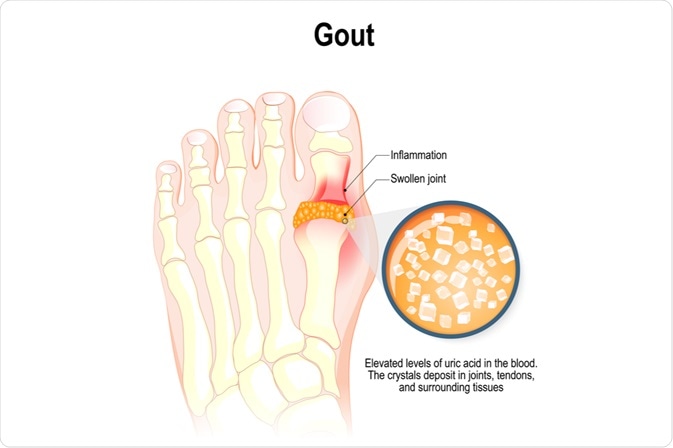The dietary principles that gout patients must adhere to. Recommended Chinese medicine prescriptions for the treatment of gout
The dietary principles that gout patients must adhere to. Recommended Chinese medicine prescriptions for the treatment of gout
With the improvement of people's living standards and changes in dietary structure, the population of hyperuricemia is getting stronger and stronger. We must keep in mind the diagnostic criteria of hyperuricemia: males are higher than 420μmol/L and females are higher than 360umol/L. Should actively intervene. Failure to control high uric acid will bring us a series of troubles. Excessive uric acid crystals will deposit in the joints and cause gouty arthritis; it will deposit in the kidneys and cause gouty nephropathy; it will stimulate the blood vessel wall to aggravate arteriosclerosis and aggravate height. Blood pressure, coronary heart disease; it can stimulate pancreatic B cells to induce or aggravate diabetes or cause metabolic disorders and other problems.
What aspects should we pay attention to in our daily life?
The basic principle of diet control is not to drink alcohol, not to eat animal organs (such as liver, kidney, brain, heart, intestine, etc.) and meat soups, eat less seafood and drink plenty of water. All other foods can be eaten properly. However, if an excessive intake of a certain food has indeed caused your gout attack, it should also be restricted.
At present, there is no good method for detecting the content of purine in food, and the reports vary greatly from one report to another. For patients, quantitative inaccuracies may be misleading. For this reason, this section only proposes some dietary principles that gout patients must adhere to for reference.
2. Purine intake: Normal human purine intake can reach 600-1000mg/day. Patients with gout should not exceed 100-150 mg per day during arthritis attacks. After treatment, blood uric acid can be maintained at a normal level for a long time, and the intake can be increased appropriately.
3. Carbohydrates: The staple food of gout patients should be carbohydrates, and carbohydrates should account for 50% to 60% of the total calories, even up to 70%. Can choose rice, corn, flour, and their products (such as steamed bread, noodles, bread, etc.). However, for people with diabetes, the intake of carbohydrates should be controlled. It is advisable to give it at 4 to 5g per kilogram of body weight per day, which accounts for about 50% to 55% of the total calories.
4. Protein: The daily protein intake should be given at 0.8-1.0g per kilogram of body weight, accounting for about 12%-14% of the total calories, and the daily protein supply can reach about 60 grams.
5. Fat: daily fat intake is given at 0.6-1g per kilogram of body weight.
Recommended Chinese medicine prescriptions for the treatment of gout:
1. Qingretongbi ointment. Gypsum, Lonicera, Anemarrhena, Cork, Atractylodes, Coptis, Astragalus, Red peony root, Yuanhu, Rhubarb, Shanzhi (Gardenia), ground powder, and vinegar for blending.
2. Four yellow powder. Rhubarb, Gardenia, Phellodendron, Huang Cen equal parts, water adjustment.
3. Huang Bai San. Rhubarb, cork, arborvitae leaves, Eupatorium, mint, and honey are blended.
4. Four-dispersion. Phellodendron, Angelica dahurica, Indigo Naturalis, safflower, and honey are blended.
5. Gold powder. Give birth to rhubarb, give birth to southern stars. Angelica dahurica, cork, turmeric, magnolia officinalis, atractylodes, tangerine peel, licorice, pollen, vinegar.
6. To relieve the pain. Raw Chuan we, grass black, Qianghuo, Alone, woody. Asarum, dried ginger, angelica, vinegar.
7. Yunnan Baiyao aerosol.
8. Liushen pill, add vinegar to reconcile. Appropriate, about 20% to 25% of the total calories. Patients with hyperlipidemia should be appropriately restricted, especially during acute gout attacks, high-fat diets should be avoided because high-fat diets can inhibit uric acid excretion.
6. Salt: For those with hypertension, heart disease, and kidney damage, the intake of salt should be restricted. It is advisable not to exceed 6g per day, and it is generally controlled at about 2~5g.

Comments
Post a Comment